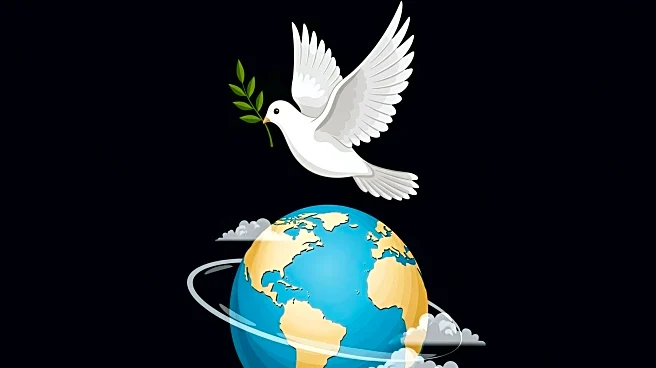What's Happening?
President Trump has called for an end to the ongoing conflict between Ukraine and Russia following a face-to-face meeting with Ukrainian President Zelenskyy. During the meeting, President Zelenskyy praised
President Trump, suggesting he has a significant opportunity to bring the war to a close. Zelenskyy also requested the provision of U.S. Tomahawk missiles, highlighting the strategic importance of advanced weaponry in the conflict. The discussions underscore the delicate balance of military support and diplomatic efforts in resolving the war.
Why It's Important?
The call for peace by President Trump and the request for Tomahawk missiles by President Zelenskyy are pivotal in shaping the future of U.S. involvement in the Ukraine-Russia conflict. The provision of advanced weaponry could significantly alter the dynamics of the war, potentially escalating tensions or leading to a resolution. The U.S. faces a critical decision in balancing military aid with diplomatic efforts, impacting international relations and regional stability. The outcome of these discussions could influence U.S. foreign policy and its role in global conflict resolution.
What's Next?
The situation remains fluid as President Trump has not yet committed to providing the requested missiles. The decision will likely involve consultations with military advisors and international allies to assess the potential consequences of increased military support. Stakeholders, including U.S. officials and international leaders, will closely monitor developments, weighing the risks and benefits of further involvement. The international community may also engage in diplomatic efforts to support peace negotiations, aiming to prevent further escalation.
Beyond the Headlines
The request for Tomahawk missiles raises ethical and strategic questions about the role of military aid in conflict resolution. The potential escalation of the war could have long-term implications for regional security and U.S. foreign policy. The decision to provide advanced weaponry must consider the humanitarian impact and the broader geopolitical landscape, including relations with Russia and NATO allies. The discussions highlight the complexities of international diplomacy and the challenges of balancing military support with peace efforts.









